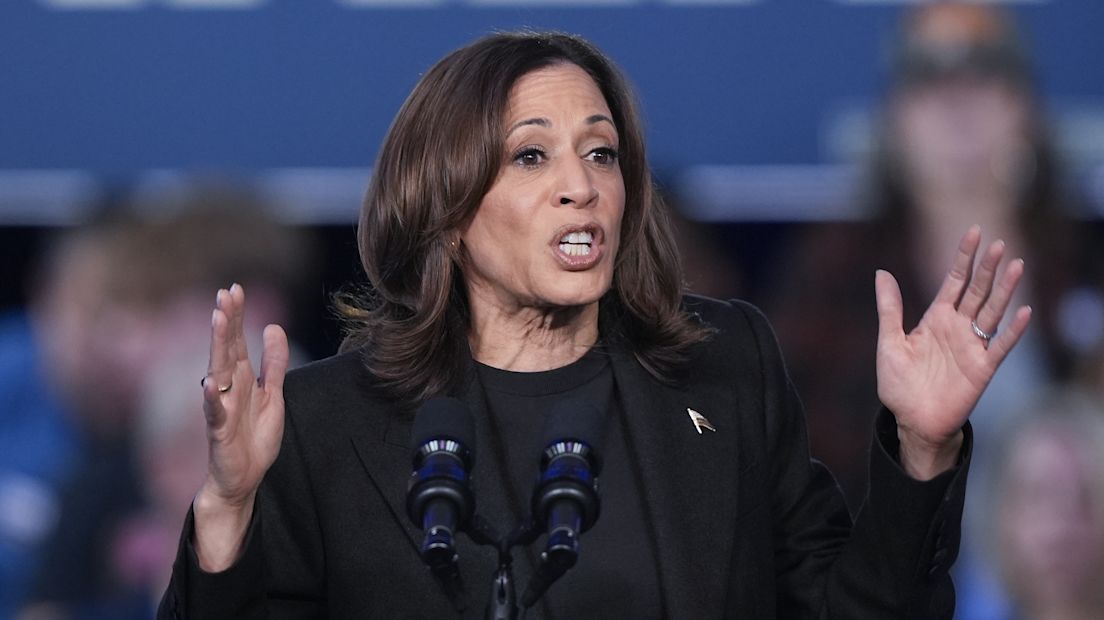As the 2024 U.S. presidential election approaches, North Carolina has become a focal point for national politics. In this crucial battleground state, both Vice President Kamala Harris and former President Donald Trump are vying for voters’ attention amid a swirl of political and natural turbulence. Recent polling shows the two candidates locked in a competitive race, but the state’s political landscape has been further complicated by a highly contested gubernatorial race and the aftermath of a devastating hurricane.
North Carolina has long been a swing state, with its 16 electoral votes often deciding close presidential elections. In 2020, Trump narrowly won the state, but Democrats are determined to flip it in 2024. Both Harris and Trump have made multiple trips to the state, underscoring its importance in the electoral map.
The governor’s race has added an extra layer of intrigue, with Democrats seeking to retain the governorship and Republicans hoping to capture the seat after eight years of Democratic leadership. Current Governor Roy Cooper, a Democrat, is term-limited and cannot run again, setting the stage for a high-stakes contest between Attorney General Josh Stein (D) and Lt. Gov. Mark Robinson (R).
Robinson, a staunch Trump ally, has made headlines for his controversial rhetoric on issues such as abortion, gun rights, and education, which has energized the Republican base but alienated some moderates. Stein, on the other hand, has focused on expanding Medicaid, protecting voting rights, and emphasizing a more inclusive vision for North Carolina. The stark contrast between the two candidates has turned the governor’s race into a microcosm of the broader national political divide.
Both Harris and Trump have weighed in on the governor’s race, with Harris endorsing Stein and Trump fully backing Robinson. Their involvement reflects the high stakes not just for North Carolina, but for the balance of power in the state legislature and the future direction of state policies on critical issues such as abortion, healthcare, and education.
Amid the political upheaval, North Carolina is also grappling with the aftermath of a powerful hurricane that recently struck the state. The storm caused widespread damage, leaving many residents without power and displacing hundreds from their homes. In response, both the Harris and Trump campaigns have had to navigate the delicate balance of campaigning in a state still recovering from a natural disaster.
Harris has highlighted the Biden administration’s disaster response efforts, emphasizing the importance of federal support in rebuilding communities and addressing climate change. She has visited areas affected by the hurricane, meeting with local officials and residents to discuss recovery efforts and how her administration would prioritize climate resilience.
Trump, meanwhile, has used the hurricane to underscore his message of deregulation and limited government. While expressing sympathy for those affected by the storm, he has criticized the Biden administration’s handling of natural disasters and environmental policies, arguing that his approach to infrastructure and energy independence would better prepare the country for such crises.
Both candidates have walked a fine line, balancing empathy with their respective policy visions. For voters still recovering from the hurricane’s impact, their responses could play a crucial role in shaping opinions about leadership during times of crisis.
North Carolina’s dual political battles—the presidential race and the governor’s race—are set against a backdrop of broader national debates on the economy, healthcare, and the role of government. For Harris, winning North Carolina would be a critical victory that could bolster her path to the presidency. For Trump, maintaining his hold on the state is essential to keeping his electoral coalition intact.
The rollercoaster governor’s race could also have national implications. A Robinson victory would further cement Trump’s influence over the Republican Party, while a Stein win would give Democrats a crucial governorship in a rapidly changing state. The outcome could also shape North Carolina’s future on key issues such as voting rights, abortion access, and economic development.
In North Carolina, both Trump and Harris are navigating a complex landscape of political challenges and natural disasters. With the state’s pivotal electoral votes at stake and a heated governor’s race grabbing national attention, the next few months will be critical for both campaigns. As the state recovers from a hurricane and the political winds shift, North Carolina is once again poised to play a decisive role in shaping the future of American politics.
